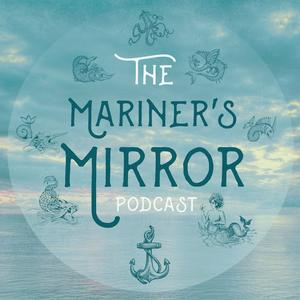I Sank the Lusitania: The War Diary of Kapitänleutnant Walther Schwieger, May 1915, Commander, U-20, 1915
This episode continues our work bringing you some of the finest original historical material, written by the people who were actually there. Today we bring you the war diary of the U-boat commander Kapitänleutnant Walther Schwieger, commander of U-20, from May 1915, when he sank the transatlantic liner Lusitania, full of civilian passengers. 1193 people died.On Friday 7th May 1915, Kapitänleutnant Schwieger found himself in the middle of a conundrum. Heading towards him was a large, four funnel ship. He knew that the British often commissioned four funnel warships as auxiliary cruisers. In his mind, his duty was clear, without warning, he loosed a torpedo, which hit the ship. After the first hit there was a subsequent large explosion, which resulted in the ship listing seriously, and eventually going under.Schwieger seems to have been appalled by the result of his attack and recorded "It looks as if the ship will stay afloat only for a very short time. [I gave order to] dive to 25 metres (82 ft) and leave the area seawards. I couldn't have fired another torpedo into this mass of humans desperately trying to save themselves." It appears that only then did he appreciate that he had torpedoed the Lusitania, which, in his favour, was known to be a potential Armed Merchant Cruiser. Schwieger was born in 1885 and in 1903 joined the Imperial German Navy aged 18. He chose the submarine service early and by 1912, he was appointed to command U-14 and was appointed to U-20 shortly after the outbreak of war. Allegedly, he had the reputation of shooting first and asking questions after. He was killed in U-88 on the 5th of September 1917, which probably hit a mine. During his wartime career, Schwieger captained three different submarines, on a total of 34 missions. He sank 49 ships, measuring 183,883 gross register tons (GRT).The fallout from the torpedoing of the Lusitania was very serious. The US President Woodrow Wilson (determined to keep out of the European War) was seriously displeased at the death of American lives and as a result of his representations, Kaiser Wilhelm gave immediate instructions to cease the unrestricted submarine warfare campaign. The resumption in 1917 after the Battle of Jutland directly caused the American declaration of War in 1917.Over the years, there have been many takes on the sinking of the Lusitania from conspiracy theories about Winston Churchill to hidden arms shipments. As always, the presentation of contemporary documents help us to understand the elements of history. Hosted on Acast. See acast.com/privacy for more information.

